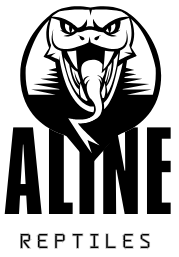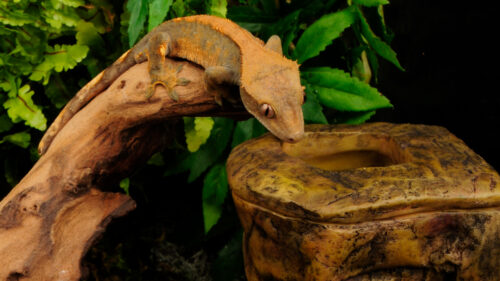Dehydrated crested geckos are a common concern among reptile enthusiasts. Crested geckos are beloved pets known for their adorable looks and docile nature, but dehydration can pose a serious threat to their health.
It’s essential to act promptly when you notice signs of dehydration, as it can quickly escalate into a life-threatening condition. If your gecko is acting sluggish, looking sunken, or refusing food, don’t panic. This guide will walk you through everything you need to know about identifying, treating, and preventing dehydration in your crested gecko, ensuring they stay happy and healthy.
How to Identify Dehydration in a Crested Gecko

Dehydration can sneak up on your gecko, but with keen observation, you can spot the signs early. Knowing these symptoms could be the difference between a quick fix and a trip to the vet.
Common Symptoms
| Symptom | Description |
|---|---|
| Sunken Eyes | The eyes appear droopy or recessed, indicating fluid loss. |
| Wrinkled Skin | Loose, sagging skin is a clear sign of dehydration. |
| Lethargy | Reduced activity levels or sluggish behavior. |
| Sticky or Dry Tongue | Difficulty extending or using their tongue due to lack of moisture. |
| Reduced Appetite | A dehydrated gecko may refuse food or show little interest in eating. |
Behavioral Signs
- Avoidance of water sources or misted areas in their enclosure.
- Difficulty climbing or balancing due to fatigue.
- Problems shedding (incomplete or stuck shed).
Visual Comparison
Picture a healthy crested gecko: their eyes are bright, their skin smooth, and they’re actively climbing and exploring. In contrast, a dehydrated gecko might look dull, with sunken eyes and a lethargic demeanor.
Immediate Actions to Rehydrate Your Gecko
If your crested gecko is showing signs of dehydration, act quickly. Here are steps to help them recover.
Safe Rehydration Techniques
- Misting the Enclosure and Gecko
- Increase misting frequency to raise humidity levels.
- Use lukewarm, distilled water to mist directly on your gecko’s body and enclosure walls.
- Create a Humidity Box
- Materials: A plastic container with a lid, moist paper towels or sphagnum moss.
- Steps:
- Cut a small hole in the lid for ventilation.
- Line the container with moist (not soaking wet) materials.
- Place your gecko inside for 10-15 minutes to help them absorb moisture.
- Offer Electrolyte Solutions
- Use a reptile-safe electrolyte solution or make your own by diluting unflavored Pedialyte.
- Place a drop on your gecko’s nose or tongue to encourage drinking.
What to Avoid
- Forcing Water: Never attempt to pour water directly into your gecko’s mouth; this can lead to aspiration.
- Over-Misting: Excessive misting can cause respiratory problems if not balanced with proper ventilation.
Common Causes of Dehydration in Crested Geckos
Understanding the root causes of dehydration can help you prevent it from happening in the first place.
Environmental Factors
| Factor | Impact |
| Low Humidity Levels | Below 60% humidity can lead to rapid fluid loss. |
| Improper Ventilation | Poor airflow can trap heat, drying out the enclosure. |
| Inadequate Substrate | Dry substrates fail to retain moisture and contribute to dehydration. |
Dietary Habits
- Feeding only dry food without supplementation.
- Lack of fresh water in the enclosure.
Health-Related Causes
- Stress or illness reducing drinking and eating habits.
- Poor shedding cycles causing fluid imbalance.
Long-Term Prevention Tips

Prevention is always better than cure. By optimizing your gecko’s habitat and care routine, you can keep dehydration at bay.
Optimal Habitat Setup
- Humidity Management
- Maintain humidity levels between 60% and 80% using a hygrometer.
- Mist the enclosure 1-2 times daily, especially in the evening when geckos are most active.
- Proper Substrate Selection
- Use moisture-retaining substrates like coconut fiber, sphagnum moss, or a soil blend.
- Avoid overly dry materials like sand.
- Ventilation
- Ensure good airflow to prevent mold while retaining adequate humidity.
Hydration Tips
- Provide clean, fresh water daily in a shallow dish.
- Incorporate hydrating foods into their diet, such as fresh fruit purees or prepared crested gecko diets with high water content.
Routine Maintenance
- Check the enclosure’s conditions daily and adjust as needed.
- Observe your gecko for any signs of dehydration or changes in behavior.
When to See a Veterinarian
Sometimes, dehydration can indicate underlying health issues. Here’s when it’s time to seek professional help.
Signs of Severe Dehydration
- Extreme lethargy or immobility.
- Persistent sunken eyes and sagging skin.
- Noticeable weight loss or malnourishment.
Underlying Conditions
- Shedding issues that lead to retained skin.
- Possible infections or diseases affecting hydration.
Finding a Reptile Vet
Use resources like the ARAV (Association of Reptilian and Amphibian Veterinarians) directory to locate a qualified reptile vet near you.
Frequently Asked Questions (FAQs)
How long can a crested gecko survive without water?
Crested geckos can survive 2-3 days without water under optimal humidity conditions but may show signs of dehydration sooner if the environment is too dry.
Can dehydration cause shedding problems?
Yes, dehydration is a common cause of incomplete or stuck sheds. Proper humidity levels are crucial for successful shedding.
What is the fastest way to rehydrate a crested gecko?
Misting and placing the gecko in a humidity box are the quickest and safest methods.
What should I do if my gecko refuses water?
Encourage drinking by offering water drops on their nose or using a reptile-safe electrolyte solution. Consult a vet if refusal persists.
Conclusion
Dehydration in crested geckos is a serious concern, but with the right knowledge and care, it’s manageable. A dehydrated crested gecko can show symptoms like wrinkled skin, lethargy, and sunken eyes.
By identifying these signs early, taking immediate rehydration steps, and creating a proper habitat, you can ensure your gecko thrives. Remember, if symptoms worsen or persist, don’t hesitate to consult a reptile veterinarian. Your gecko’s health is worth every effort.

